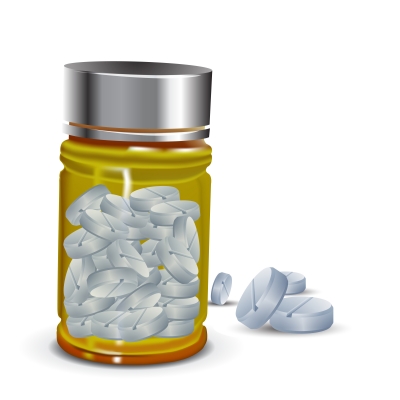ADHD ─ Facts You Need to Know

It is impossible, in so short an article, to supply all the information you need to know about treating a child who has Attention Deficit Hyperactivity Disorder (ADHD). Consequently this is one of a series of articles aimed at helping parents, teachers, or indeed anyone who needs to learn the important facts, and cope with children suffering from this problem. In Recognise and Help Children with ADHD the emphasis is on identifying the problem, seeking help and tips on organising daily life in ways which will benefit them. However, this present article focusses more on the medical aspect of the condition.
Factors that Increase the Risk of ADHD
Numerous factors have been associated with the development of ADHD. Studies have indicated that genes may play a role so that it may be common to certain families. It is thought that environmental issues could also present risks, and that problems concerning the central nervous system may be detrimental at crucial points during a child's development.
Susceptibility to ADHD has been associated with:
- a parent or sibling already known to have ADHD or another mental health disorder;
- contact with environmental toxins;
- smoking, using drugs, or alcohol during pregnancy;
- the mother's exposure to environmental poisons — such as polychlorinated biphenyls (PCBs)
- Premature birth.
There has been a great deal of discussion about the possibility of sugar causing hyperactivity, but this has not been reliably proven. It should be noted that there are many causes of difficulty maintaining attention in children, but that does not mean the child has ADHD.

Treatment for ADHD
Which Treatment Did You Choose in Fighting Problems of ADHD
Do you Need a Professional Evaluation to Assess ADHD?
Anxious parents, waiting for every sign that their child is developing normally, may easily mistake developmental problems, such as delays in language learning and behavioural patterns for ADHD. How often have you heard parents saying that their child is hyperactive, when actually the child is really energetic and mischievous? Consequently it no simple matter to diagnose the disorder in very young children. If you are uneasy and suspect a child of having ADHD talk to your medical advisor or seek an evaluation by a specialist, such as a developmental paediatrician, speech pathologist, psychologist or child psychiatrist.
Will My Child be Tested for ADHD?
Although there is no single test for ADHD, a diagnosis will probably be made after:
- a medical exam to rule out other possible causes for your child's behavioural issues;
- gathering information about the family, personal problems, school routine etc.
- asking people, carers, educators, friends and family members to fill in questionnaires about your child;
- ADHD rating scales to help gather and evaluate information.
What to expect from your doctor
Start gathering information ready for your appointment with your child's paediatrician:
- How old was your child when you first became aware of his/her behaviour issues?
- Is the problem behaviour sparked off by particular situations or is it continual?
- How severe are your child's difficulties?
- Does anything make him/her more badly behaved?
- Does anything improve his/her behaviour?
- What is your child's sleep pattern?
- What is your child's academic performance like?
- Has his/her performance deteriorated?
- Does your child enjoy or find reading difficult?
- What methods do you use when disciplining your child?
- How effective are your discipline methods?
- Do you have a strong daily routine at home?
- Who lives at home?
Treatments for Children with ADHD
There are a variety of treatment your doctor may recommend for your child. Some doctors prefer the use of several different types of treatments. These may include medications, education methods, training and counselling. More and more people are also looking to holistic remedies and nutrition. It will take time to find out which treatments and methods help your child. Much will be a matter of trial and error, but treatment and adjusting your way of life will relieve many of your child's symptoms even though they are not a cure for ADHD.

Stimulant Medications
Perhaps the most commonly prescribed medications for ADHD are psychostimulants which boost and balance levels of brain chemicals called neurotransmitters which can sometimes dramatically assist and improve signs and symptoms of inattention and hyperactivity.
The dosage will vary from child to child and will need to be monitored and adjusted if unwanted side-effects occur or as your child matures.
The right dose varies from child to child, so it may take some time to find the correct dose, and the dose may need to be adjusted if side-effects occur or as your child matures.
Stimulant Medications: the Risk Factor
There have been heart-related deaths in children and teenagers taking stimulant medications. Although this is rare and as yet not proven to be linked to the medication, your doctor should make sure that your child has no sign of a heart condition, as well as check the family medical history and risk factors before prescribing stimulants.
Other Medications
Atomoxetine and antidepressants are other medications that your doctor may prescribe if your child has health problems or side-effects that prevent him or her from taking stimulants. Be prepared to be patient, since these can take several weeks before you see the full effect. Always be sure to ask your doctor about the side-effects.
Suicide Risk
Again it has nor been proven, but there is concern that children taking non-stimulant ADHD medication may be at increased risk of committing suicide. Be aware of signs of depression or suicidal thinking in your ADHD child, and if anxious, always contact your doctor.
Administering Medications
Safety first is rule number one when administering any kind of medication.
Always:
- Supervise and administer the drug yourself. Do not leave children or teenagers in charge of their own medication.
- Keep drugs locked away in a childproof container.
- Deliver supplies of drugs to school yourself if necessary, and do not entrust them to your child.
If you adhere to the correct dosage of the drug there should be no cause for alarm that your child will be come dependent or addicted to the drug. However, there is concern that siblings and classmates of ADHD children may abuse stimulants, so ensure proper care is taken to avoid this possibility.
Other Treatments for ADHD
As previously mentioned there are many different approaches to tackling this disorder; according to the extent of the problem you may prefer to consult a psychologist or psychiatrist, speech pathologist, or developmental paediatrician. Homoeopathy has been reported to gain good results in this area, and diet also plays a part. Increasingly people are coming together with idea to help each other in the treatment of this disorder.
Useful Links
There are organizations to help sufferers.
- The National Resource Center on ADHD can be found at: http://www.help4adhd.org/ and
- Wikipaedia has a list of links that you may find helpful at: http://en.wikipedia.org/wiki/List_of_attention_deficit_hyperactivity_disorder_organizations










